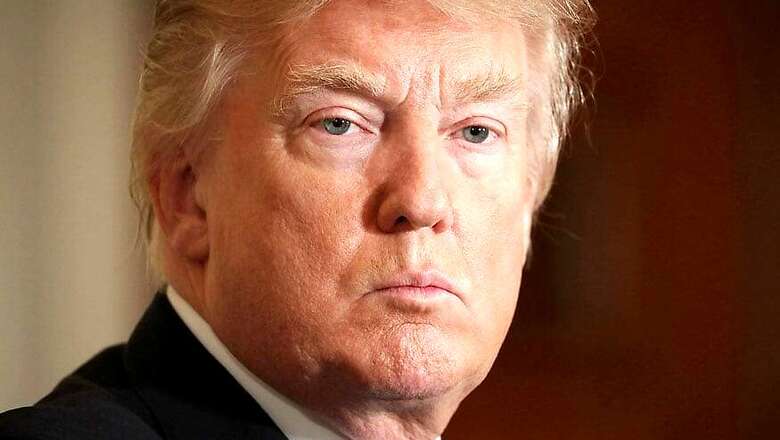
views
Caracas: US President Donald Trump threatened Venezuela with swift "economic actions" on Monday if its leader, Nicolas Maduro, pushes on with an unpopular bid to change his country's constitution in the teeth of mounting condemnation.
The warning came as the opposition coalition in Venezuela called a nationwide strike for Thursday to kick off a "final offensive" aimed at forcing Maduro from office through early elections.
Maduro, Trump said in a statement, was "a bad leader who dreams of becoming a dictator."
"The United States will not stand by as Venezuela crumbles," he said.
Trump did not specify what measures could be taken. But the warning dramatically raised the stakes and scope of the long political and economic crisis that has been battering Venezuela.
Nearly 100 people have died since April when street protests against Maduro turned violent.
Trump's stance explicitly sided with the Venezuela's opposition, which accuses Maduro -- a leftist, anti-American president who took over from his mentor, the late Hugo Chavez -- of trying to accumulate dictatorial powers to hang on to the reins.
It risked feeding Maduro's frequent allegations that he was the victim of a plot by a colluding right-wing opposition and the "imperialist" United States.
Nationwide strike
Venezuela's opposition coalition has called a nationwide, 24-hour strike for Thursday to add pressure to Maduro following an unofficial weekend vote it held that rejected the leader's plan.
That plan, which Maduro has shown no sign of deviating from, entails a citizens' body -- called a "Constituent Assembly" -- being elected on July 30 to redo the Constitution.
Maduro says that path is the only way to secure "peace" and economic recovery in Venezuela. His government has dismissed the opposition vote against it as "illegal."
But Trump said, "if the Maduro regime imposes its Constituent Assembly on July 30, the United States will take strong and swift economic actions."
Venezuela, with the largest proven oil reserves in the world, is almost entirely reliant on its crude exports.
The United States imports around 270 million barrels of oil a year from Venezuela, according to the US government's Energy Information Administration -- a volume in decline by about a third compared to a decade ago.
'Final offensive'
Venezuela's opposition is intent on a "final offensive" ultimately aimed at toppling Maduro through early elections.
On Sunday, more than a third of Venezuela's 19 million voters took part in the opposition ballot, giving an overwhelming rejection to the election of a Constituent Assembly and backing a presidential election before Maduro's term ends in 2019.
The poll was lauded by the European Union, the United Nations, the US, Brazil and other countries.
However, Maduro, backed by a loyal military, has up to now shrugged off the opposition tactics and the international criticism leveled at him.
Despite growing public anger at food and medicine shortages under a spiralling economic crisis that has swelled the opposition movement, authorities in Caracas portray the efforts against them as illegitimate and fomented by the US.
'Demand for political change'
One leader in the opposition coalition, Freddy Guevara, said the strike this week was a "mechanism for pressure and to prepare for the definitive escalation to take place next week."
A total of 7.6 million Venezuelans turned out for Sunday's vote, at home and abroad, the opposition said.
That figure -- though disputed by the government -- was more than a third of Venezuela's total 19 million voters, undermining legitimacy for Maduro's future Constituent Assembly.
Brazil's foreign ministry said in a statement "the high turnout in the plebiscite... was an unmistakable sign the Venezuelan people want democracy quickly restored."
Political analyst John Magdaleno told AFP that "there is evidence of a persistent and durable demand for political change."
According to the opposition, the final turnout figure was enough to overturn Maduro's mandate should there be a recall referendum, because it exceeded the 7.5 million votes that put the president in power in 2013.
To lend weight to the vote, a group of former Latin American presidents, including Mexico's Vicente Fox, who was declared "persona non grata" by the government, took part as observers.
But Luis Vicente Leon, head of the polling firm Datanalisis, said the opposition's challenge now was to leverage the vote to "press for negotiations that would give a peaceful chance for change."


















Comments
0 comment